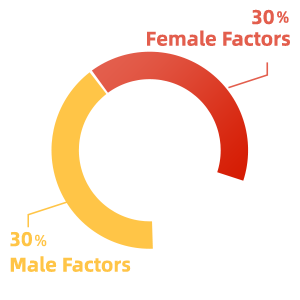 In the midst of uncertainty, our primary mission is to create a sense of certainty and hope for those who suffered from diseases that have a significant impact on their quality of life.
In the midst of uncertainty, our primary mission is to create a sense of certainty and hope for those who suffered from diseases that have a significant impact on their quality of life.
Driven by a strong sense of compassion and a desire to serve others, I have progressed from a clinic medical student to a healthcare administrator. Over the past decade, I have had the privilege of working with world-class specialists from different countries. Even though the technologies, medications, and protocols being used may significantly differ across various regions, the ultimate goal of innovative medications and breakthrough treatment technologies is to instill hope and extend the seeds of love to patients suffered from suboptimal health status and serious diseases.
At EmbryMed, we are dedicated to establishing ourselves as a premier medical services provider in the field of human assisted reproductive medicine and related areas. With a highly skilled medical team and a cutting-edge medical philosophy, our patient-centered care approach ensures that we provide high standard of care to patients from all over the world. You are not alone in this journey. We are equipped with knowledge, technologies, and professionalism to tackle challenges and opportunities with a fresh perspective, while remaining true to our original patient-centered approach. Our ultimate goal is to help you achieve a more fulfilling life.










| Age Group | Percentage | Main Symptoms |
|---|---|---|
| Adolescenc | Less than 1% | No obvious pelvic floor problems |
| 20-30 years old | 5%-10% | Slight urinary incontinence and pelvic muscle relaxation |
| 30-40 years old | 15%-20% | Urinary incontinence, discomfort during sexual activity, pelvic organ prolapse, etc. |
| 40-50 years old | 25%-30% | Urinary incontinence, constipation, muscle relaxation, bladder prolapse, etc. |
| Over 50 years old | 30%-50% | Urinary incontinence, constipation, bladder prolapse, muscle relaxation, etc. |